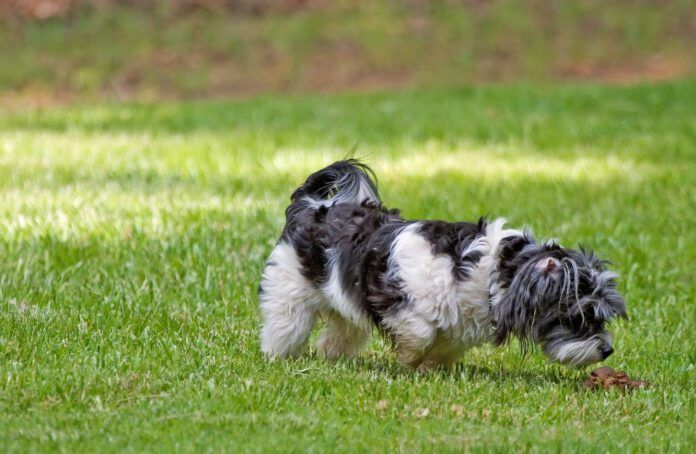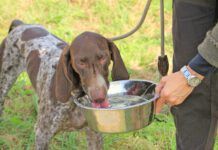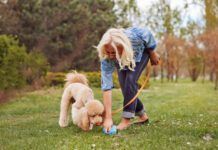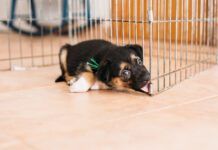Just like people, dogs are susceptible to gastrointestinal illnesses. So, yes, dogs can get stomach bugs, including anything from just vomiting and diarrhea to whole-body illnesses, just like people.
Can Pets Get Norovirus from Humans?
A big concern in human medicine is norovirus. This virus can be devastating to people who may already be ill due to its effects on hydration. Can dogs get this virus from people, and if so, share it with others? The answer is yes.
The norovirus is a tough virus and can survive in the environment. Your dog, by sniffing or licking where another dog has eliminated, can take in the virus. If you don’t clean up after him, more viral particles are left to infect others, and even you if you don’t practice good hygiene.
Signs of Norovirus in Dogs
Unlike parvovirus, norovirus is not usually associated with blood in diarrhea or vomit and does not have an associated, distinctive odor. (Parvovirus is one of the deadliest canine gastrointestinal viruses. As is typical of viral infections, there are no specific treatments, just supportive care while your dog’s body fights the virus off with his own immune system.)
Alert your veterinarian if you see these possible signs of norovirus in your dog:
- Vomiting
- Diarrhea
- Dehydration
- Abdominal Pain
- Nausea
- Approaches food but backs away without eating
Diagnosing Norovirus in Dogs
Mild cases of stomach and intestinal upsets are often treated at home without testing to identify the cause. For severe cases, situations with multiple dogs affected including kennels, daycares, or in a home where people are showing similar symptoms, diagnostics become more important. Fecal samples can be tested for specific DNA to accurately identify which virus is causing the illness using polymerase chain reaction (PCR) techniques. Regular fecal testing may be done to rule out gastrointestinal parasites as well.
Treatment of Norovirus in Dogs
Treatment is symptomatic. If your dog can’t keep fluids down, you may need to get IV or subcutaneous fluids at the veterinary clinic. Hydration is the most important thing. Ice cubes encourage your dog to slowly lick and take in small amounts of water at a time. Providing plenty of fresh, cool water is important. You can add some low-salt bouillon or juice from tuna canned in water to add flavor to the water and encourage more drinking.
Antiemetics, which are medications that prevent nausea and vomiting, may be prescribed, along with medications to help with diarrhea. Increasing fiber at home by adding some plain canned pumpkin can help with diarrhea.
It is often best to hold off on any food for 24 hours or so, except for small puppies and dogs with some health conditions such as diabetes. Start back up with small amounts of bland food like boiled chicken or hamburger with some rice, pasta, or instant mashed potatoes. There are also prescription bland diets.
Preventing norovirus means avoiding situations where the virus might be present. If there is an outbreak at daycare or the local dog park, keep your dog home. Avoid any areas where dog waste tends to be left and not picked up.






